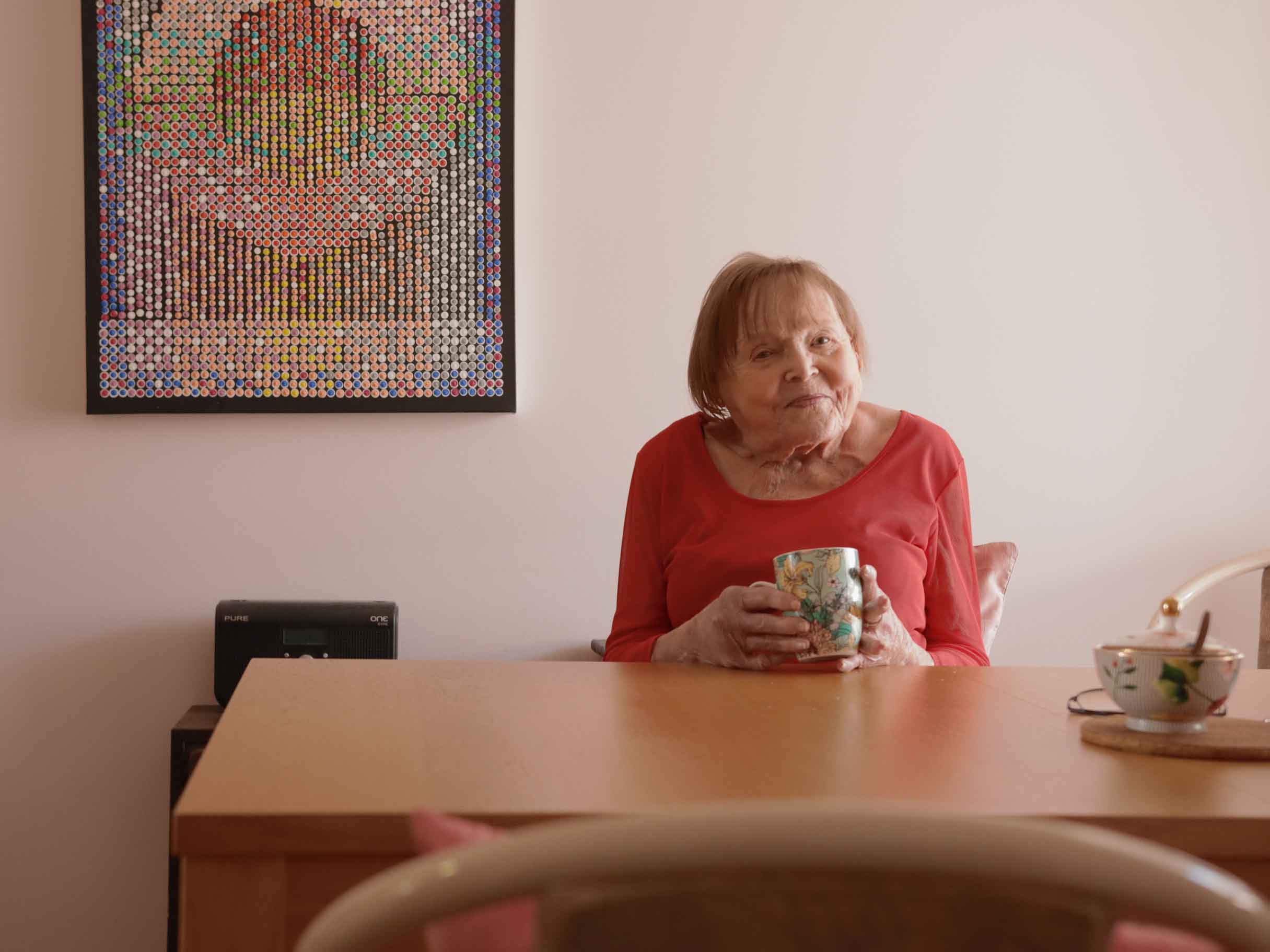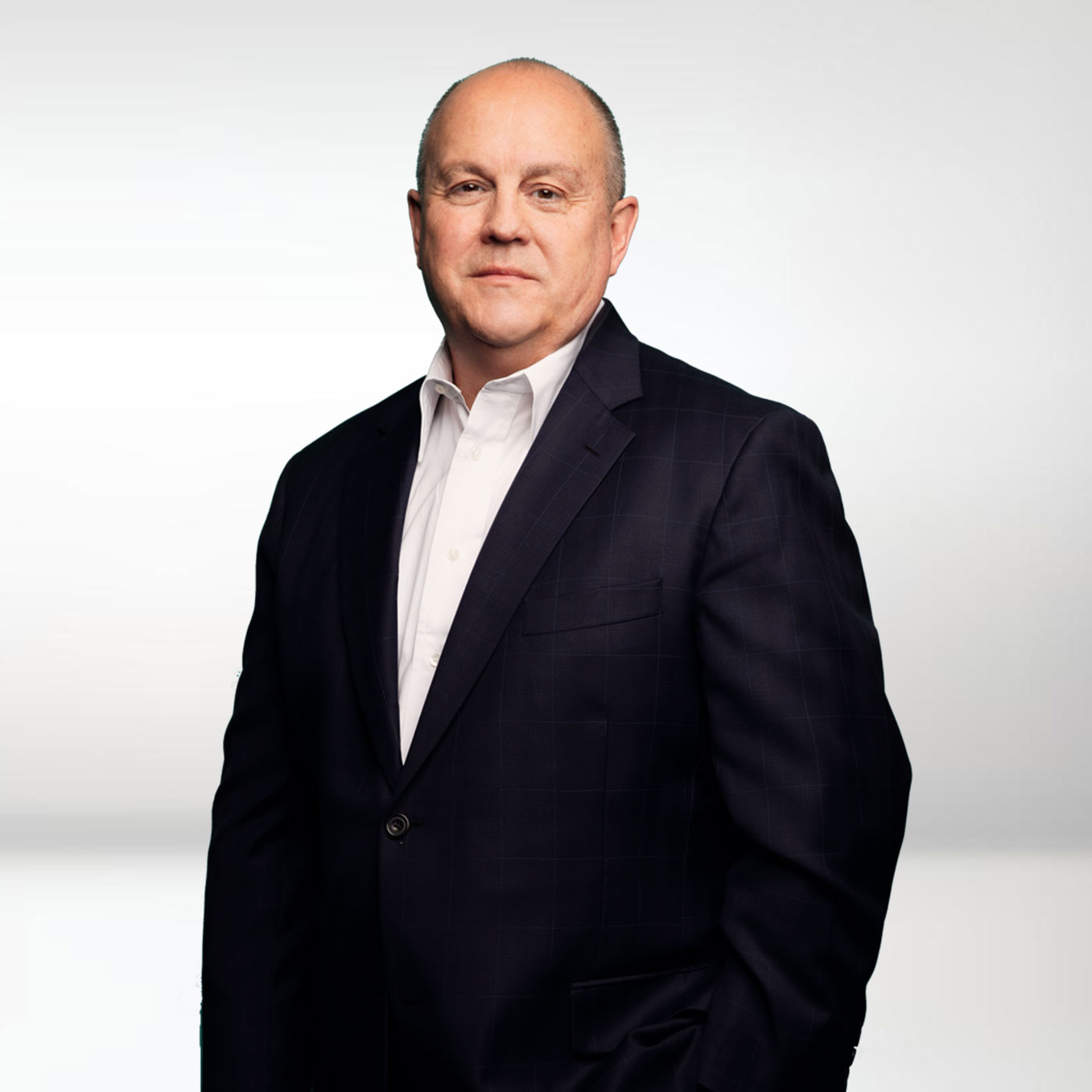
How Far We've Come
CEO Rice Powell reflects on his conversation with Sue Williams, our patient who has been on dialysis for over 50 years, and shares the progress Fresenius Medical Care has made over the past quarter century.
If 2021 was a marathon, most of us are pretty exhausted at the finish line. The news of yet another coronavirus variant heading our way has given even the optimistic some end-of-year fatigue: "Will it ever be over," people say, "or will we have to live like this forever?".
I recently had the chance to meet a woman from South Australia who faced the same questions over half a century ago – and she provided a very inspiring answer.
The woman’s name is Sue Williams, and she was 14 years old when her kidneys began to fail. About one in ten adults live with chronic kidney disease, but they are usually diagnosed much later in life. If kidneys fail, they lose their filtering and cleaning ability, and dangerous levels of fluid, electrolytes and wastes can build up in your body, which, over time, will poison you from the inside. Sue needed something to replace that function – or she was destined for an untimely death.
In the late 1960s, dialysis was still in its infancy. Sue's home state South Australia had only four dialysis machines, which meant that doctors had to decide who could get the life-saving treatment – and who would not. Sue was one of "the lucky ones," but that didn't mean she got the coveted spot right away. She had to wait over a year until a dialysis machine became available.
That is already a horrible scenario. Now imagine spending that anxious time on a rigorous diet: low protein, low potassium, low salt, "low everything," as Sue recalls it. She needed to starve her body of these nutrients to slow the poisoning. It was a waiting game and one in which she felt more tired and nauseous every day.
Can you imagine a 14-year-old going through that ordeal? If you can, you probably wouldn't think of someone like Sue, who, at 68, is among the most cheerful and optimistic people I’ve ever met. In her telling, even the story of her misfortune becomes an uplifting tale: "Through dialysis, I had the opportunity to live a wonderful life," she says. "I had my own business and later became a radio presenter and producer. Then I met Roger Williams, a wonderful man who became my husband for 26 years. It's been a wonderful life."

Listening to Sue's story reminds me how far we've come, a thought that can get lost in the daily frenzy. It makes me proud to see the human spirit prevail under challenging circumstances like hers.
Sue is an incredibly strong person. To become more independent, she taught herself everything there is to know about dialysis at home. "We were told we had to attach ourselves to the machine. The dialyzers were very primitive at the time. You had to be careful not to rip the cellophane, which would have meant that your blood didn't come back to your body but went down the drain. It was scary."
But she managed without much support. She kept things sterile, looked after her diet and fluids, and moved her treatments around so she could start a party planning business with her mother: "We'd have parties at different people's places, and then we'd come home and switch the machine on. It was perfect."
Then came the chemical spill. She had to sterilize the machine with formaldehyde, and one day, she spilled a whole bottle on the carpet: "We called it in and soon heard the fire brigade and a police helicopter overhead. In those days, they didn't know what to do. So the fire brigade came with their snorkels, and they just ripped the carpet off and put it out in front of the house. The lawn was soon dead, and my mum was carted off to the hospital because she had inhaled fumes. I was left standing outside with the dog."
Sue switched to a dialysis center that had been built nearby, and today, she's with Fresenius Medical Care: "It's a beautiful unit that's been open for three years here in Brighton. There are 28 chairs, and it's clean and bright. We've got a window which looks out on a lovely patio and a garden with lots of green plants."
Listening to Sue's story reminds me how far we've come, a thought that can get lost in the daily frenzy. She has been on dialysis for 52 years now. She’s courageous, ready to get needled on a rocking cruise ship in the middle of a cyclone – something that actually happened when she went on a cruise before the pandemic. It makes me proud to see the human spirit prevail under challenging circumstances like hers.
But I am proud to know that in the 25 years our company exists, the lives of our patients have gotten much easier. In Australia and many other countries, dialysis is paid for by the healthcare systems, and there are no panels anymore that decide who gets to live. Sue’s early treatments took 14 hours and left her feeling completely depleted – now it’s 10 hours less, and patients feel much stronger. New machines have made home dialysis a lot easier and safer since Sue’s “Do it yourself” days, even allowing patients to do the procedure at night while they sleep.
But the most important thing is that nobody has to shoulder any of it alone anymore. Our health care professionals work closely with each patient, guiding them every step of the way and staying connected 24/7. Today’s kidney patients can even do something Sue has dreamed of all of her life: With our dialysis centers located all over the world, people can travel and still receive their treatment on schedule.
How is your end-of-year fatigue now? Mine is a lot better after receiving my dosage of Sue and her inspiring story. I believe we will conquer the Corona pandemic just as we conquered many other health care challenges in the past. So as my holiday message to you, let me give the last word to Sue: “I've had a really happy and wonderful life, you know. Congratulations on coming so far, and hip hip hurray to Fresenius Medical Care!”
Sincerely,
Rice Powell
CEO and Chairman of the Management Board